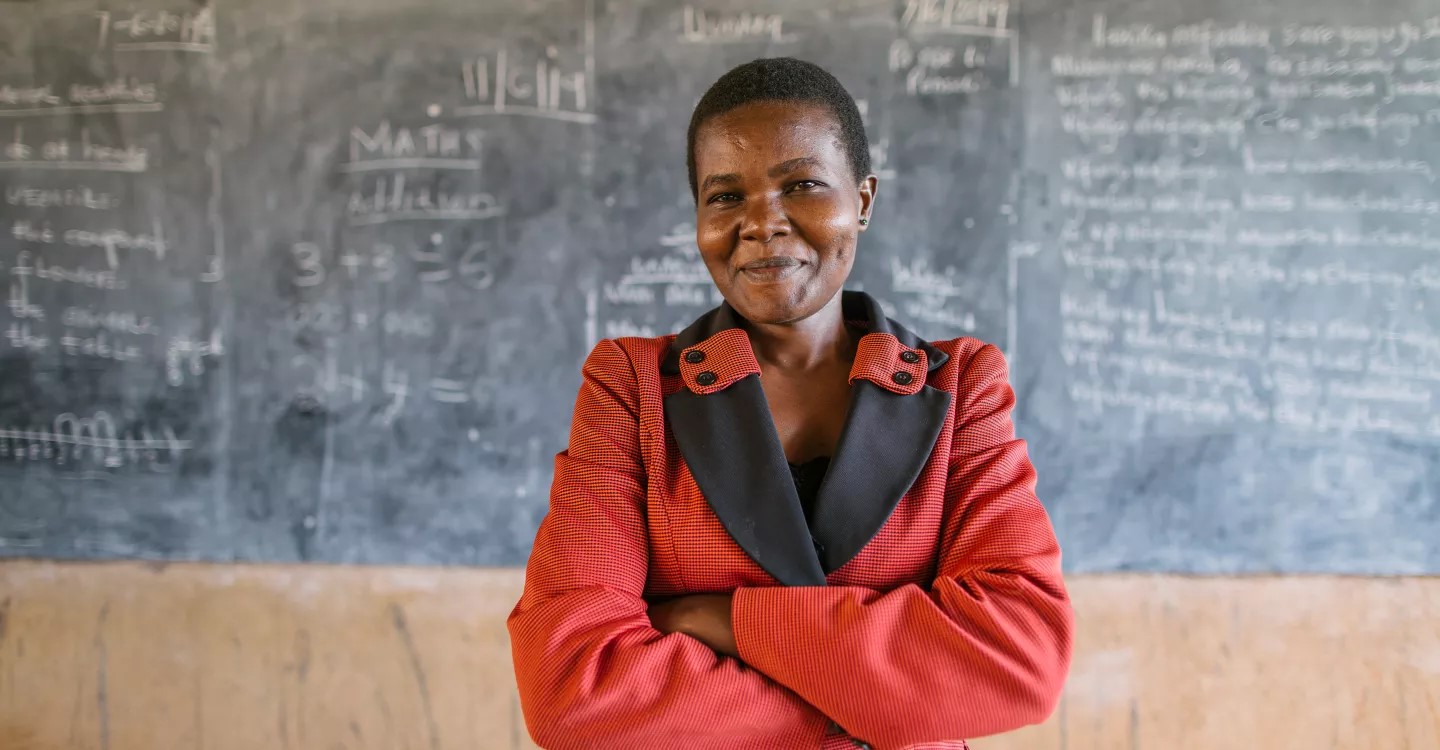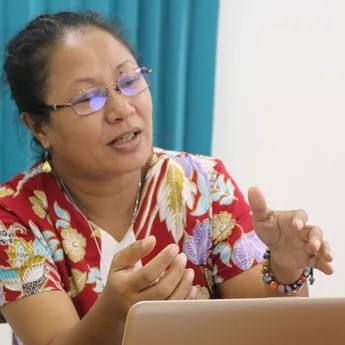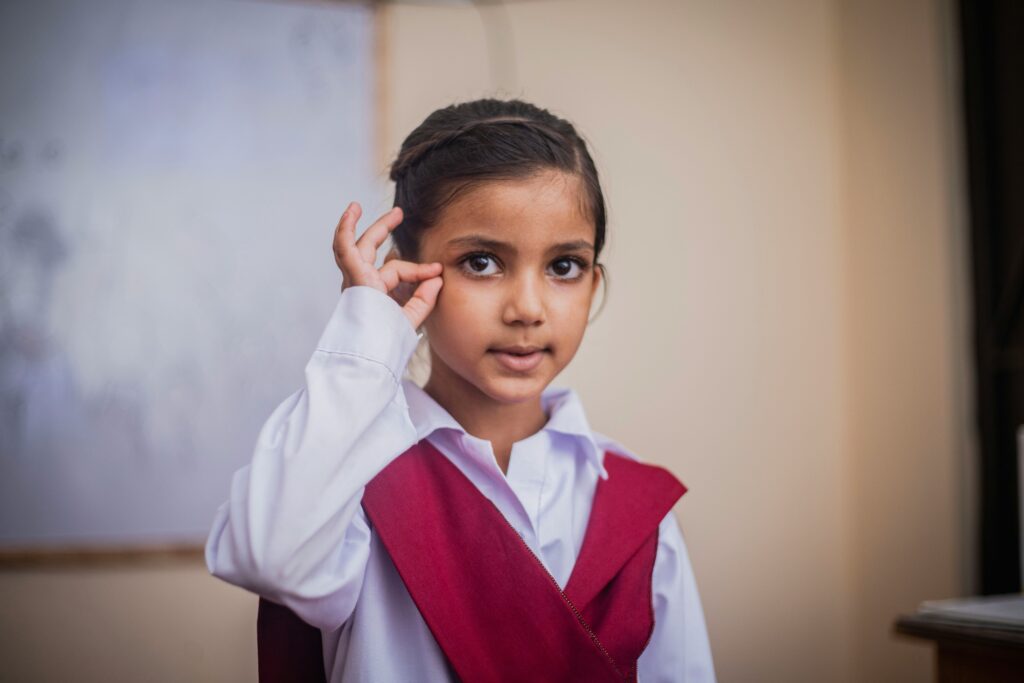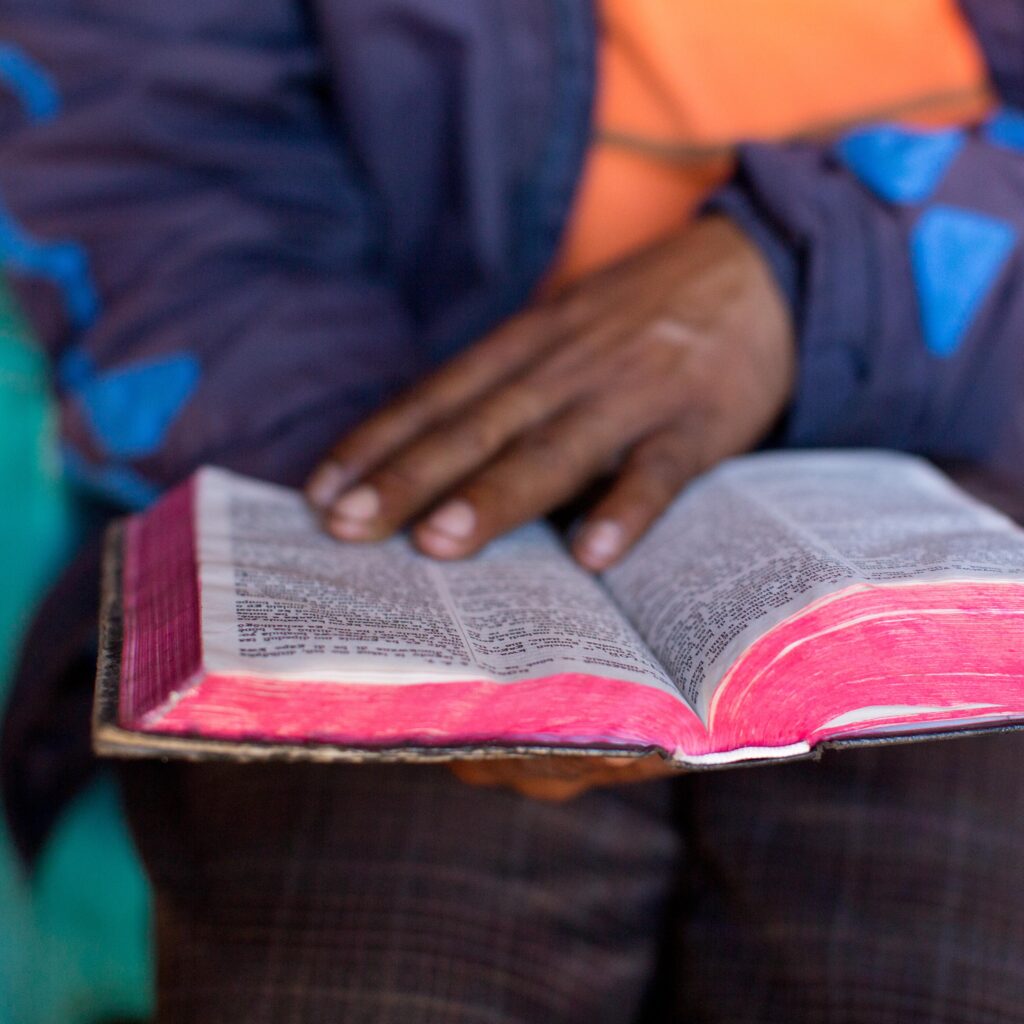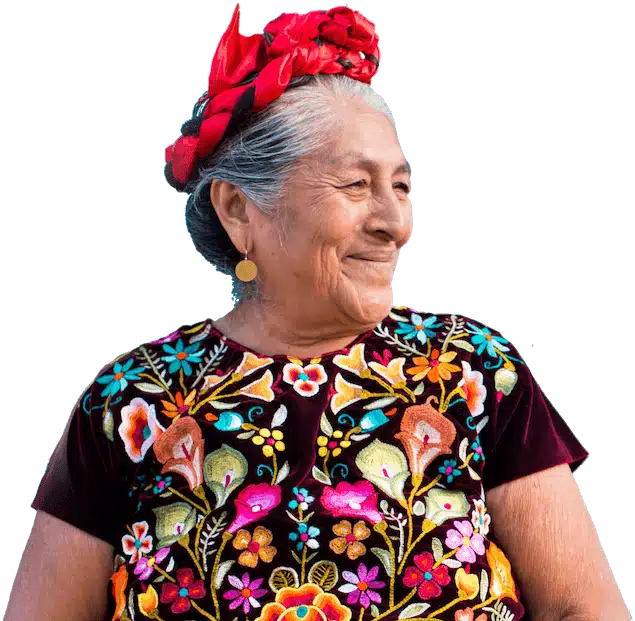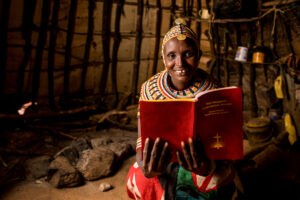Imagine if you opened your Bible and couldn’t read a single word. That’s what it is like for people without Scripture in their own language.
People often ask, “Don’t most of those people speak a national language that already has the Bible? While it’s true some do, God’s Word reaches us all most effectively in our heart language. The national language can be a second or even third language for them.
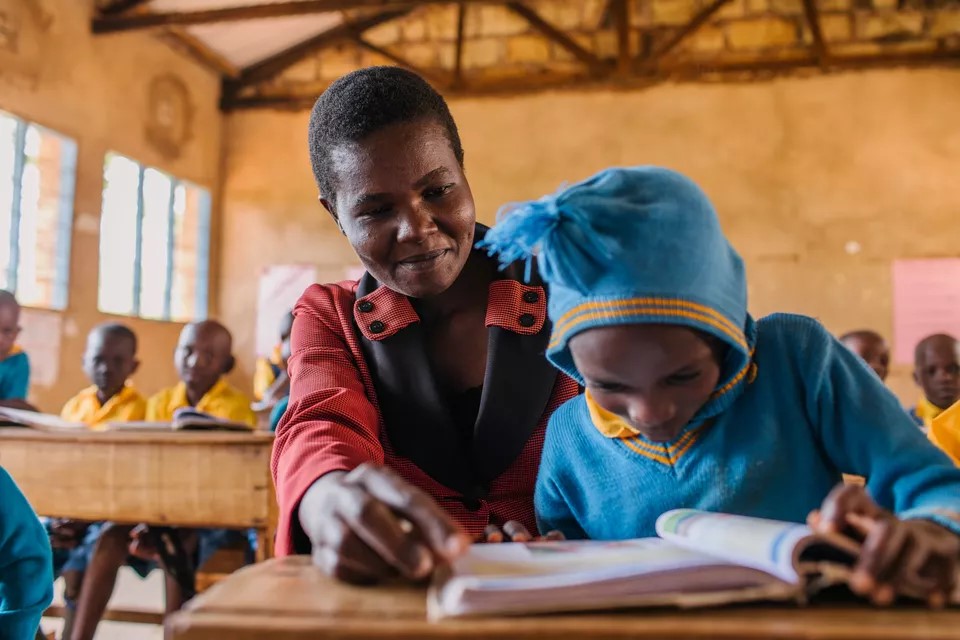
Children Learn More Effectively in Their Heart Language
Jane admits she didn’t want to be a teacher growing up. Her mother encouraged her to go to Sunday school and learn the Bible. “Being a teacher is a calling,” she says.
Her students read the Tharaka New Testament as part of Christian Religious Education each morning. “Having the full Bible [in Tharaka] is important because children learn more effectively in their first language—the language they grew up with. It is easier, more comfortable, and more fluid for them.”
The children see themselves in Scripture as they read. “I help them prepare for life with Bible stories,” Jane says. “When the children read about Joseph and how his brothers were jealous of him and treated him badly, they see jealousy is not good. They also see that God’s plan is good.”
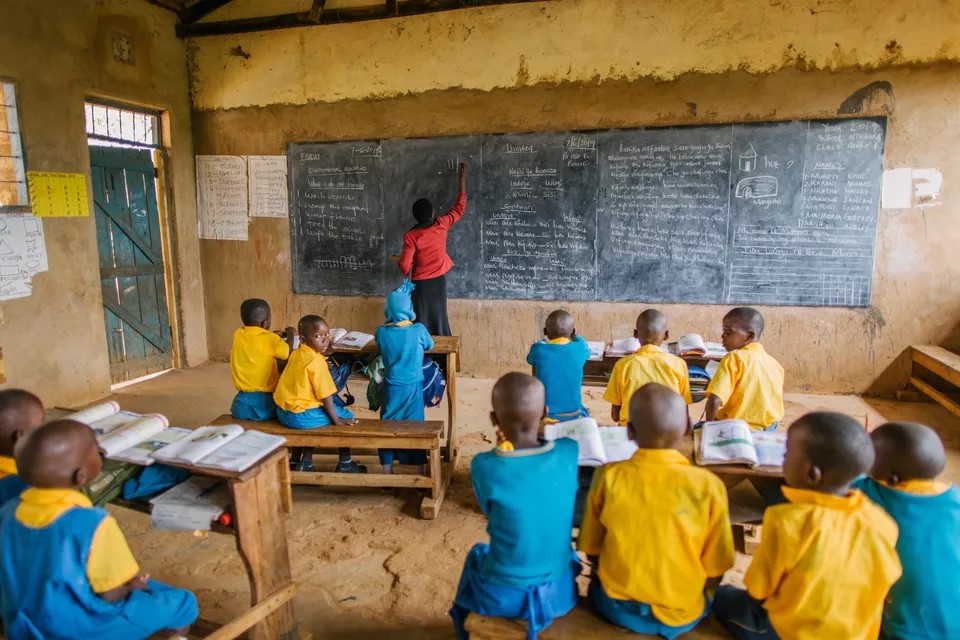
“I would be a very different person without Scripture. The Bible has given me values to live by. [God’s Word] helps me to be a better person, a better teacher, and a better mother.” – Madam Jane Marimanti, Kenya
Teaching allows Jane to spend more time with her own two children. “I use the Bible stories to help my children. When I correct my daughter, for example, God’s Word helps me guide them and teach them as well. When she and her brother fight, I use Bible stories that remind them to be kind to all.”
Meet another teacher, Sarah, who uses heart language Scripture in her classroom.
Why Does God’s Word Reach Us Best in Our Heart Language?
- For many of today’s Bibleless people groups, reading their nation’s trade language feels like reading a complicated textbook.
- They also may have little or no formal education, making deep understanding difficult.
- In addition, many live in oral cultures where storytelling in the heart language is the primary method of learning.
Every person learns at least one language in early childhood. We call this the mother tongue because it’s the language learned from a mother or surrogate. In Bible translation, we have witnessed transformation in people who hear, or in the case of the Deaf, see God’s Word in this language–their heart language.
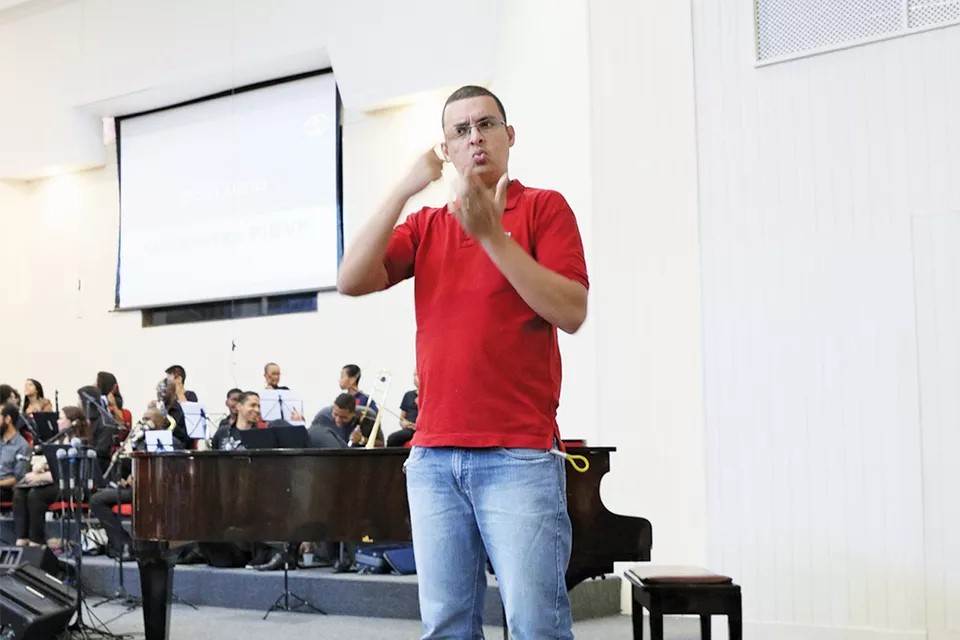
Signs and Wonders in Brazil
With a green screen behind him, Carlos Silva signs Jesus’ words in Matthew 19 in front of the camera:
“Let the children come to me. Don’t stop them! For the Kingdom of Heaven belongs to those who are like these children” (NLT).
Growing up as a Deaf child, born to Deaf parents, Carlos’ journey has been difficult. Neither his father nor mother knew how to read or sign. Rather, they would use simple gestures to communicate. With an isolated existence, loneliness and shame overwhelmed Carlos.
“Everyone else I knew was hearing,” Carlos signs. “I felt very empty. Communication was impossible. I couldn’t understand what they were saying to me. I remember thinking I was the only Deaf child in the whole world.”
When Carlos was 15, a friend from school invited him to church. Carlos refused time and time again, but his friend persisted. Eventually, Carlos went. There, Carlos understood the gospel for the first time. Carlos thought, “Because of me? Jesus paid for my sin with his blood? He rose again to give me eternal life? It was my fault he was killed?”
That day, Carlos accepted Christ.
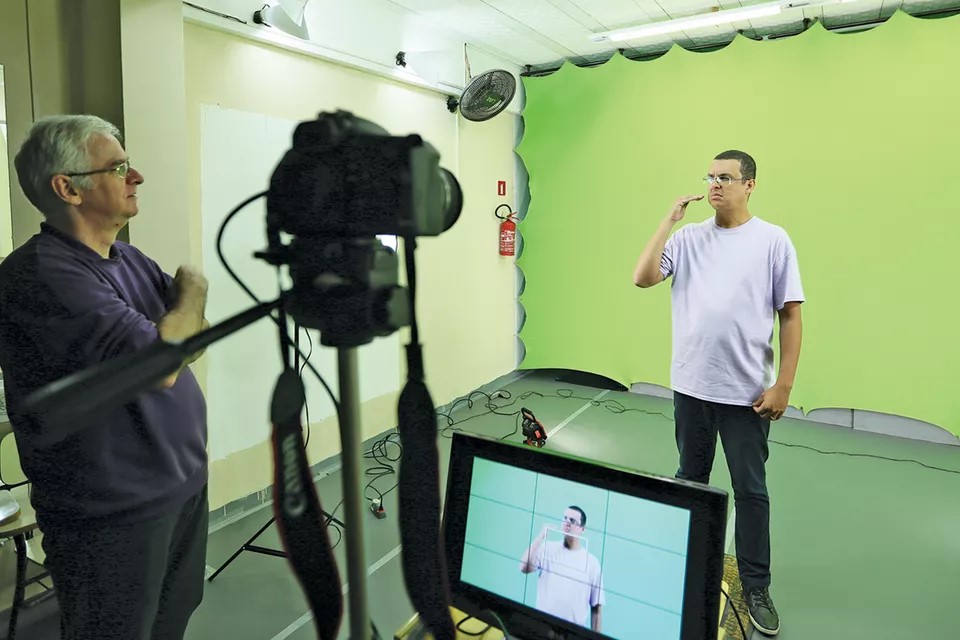
God’s Hope Reaches the Deaf
After attending seminary, Carlos began to share God’s Word all over Brazil. He often went to the prisons and the slums. He visited with the poor, the drug addicts, prostitutes, and transvestites, telling them of the hope they could find in Jesus.
In 2017 Carlos visited the LIBRAS Bible translation project in Curitiba, Brazil. The translation team had asked Carlos to sign one of the Bible stories for a DVD. “I got so excited when I realized what it was: a translation for children!” he signs. “I was dreaming about how my daughter, Isadora—who is also Deaf—would, in the future, be such an intelligent, fluent signer. It really impacted me.”
After recording the story, Carlos went home and showed the DVD to Isadora. He then asked her questions based on the stories, and she was able to answer each one correctly.
“I realized that she had understood everything,” Carlos explained. Now Isadora asks to play the DVDs over and over again—several times a day.
When God Speaks Your Language
When one believes God speaks in the language of his or her heart, it makes all the difference. And it has power beyond mere words.
At Seed Company, we are passionate about accelerating the translation of God’s Word in every heart language that needs it by 2025.
Discover how you can get involved in this move of God.
